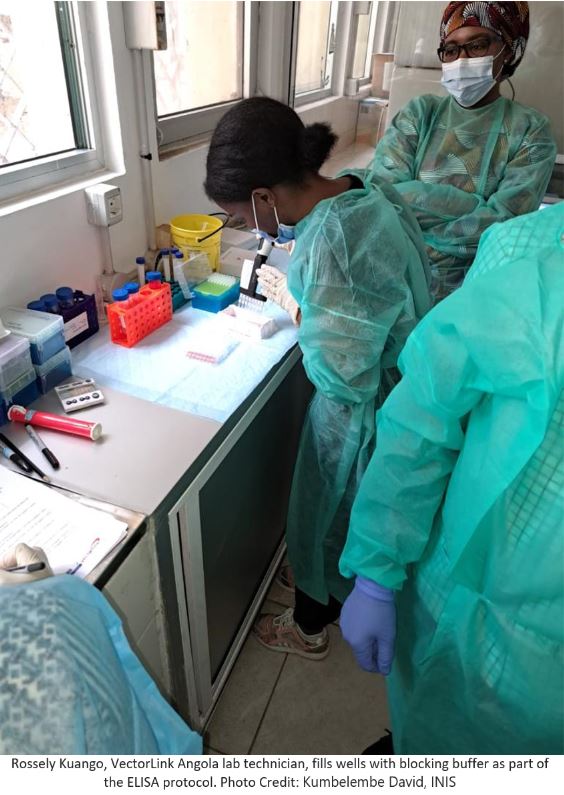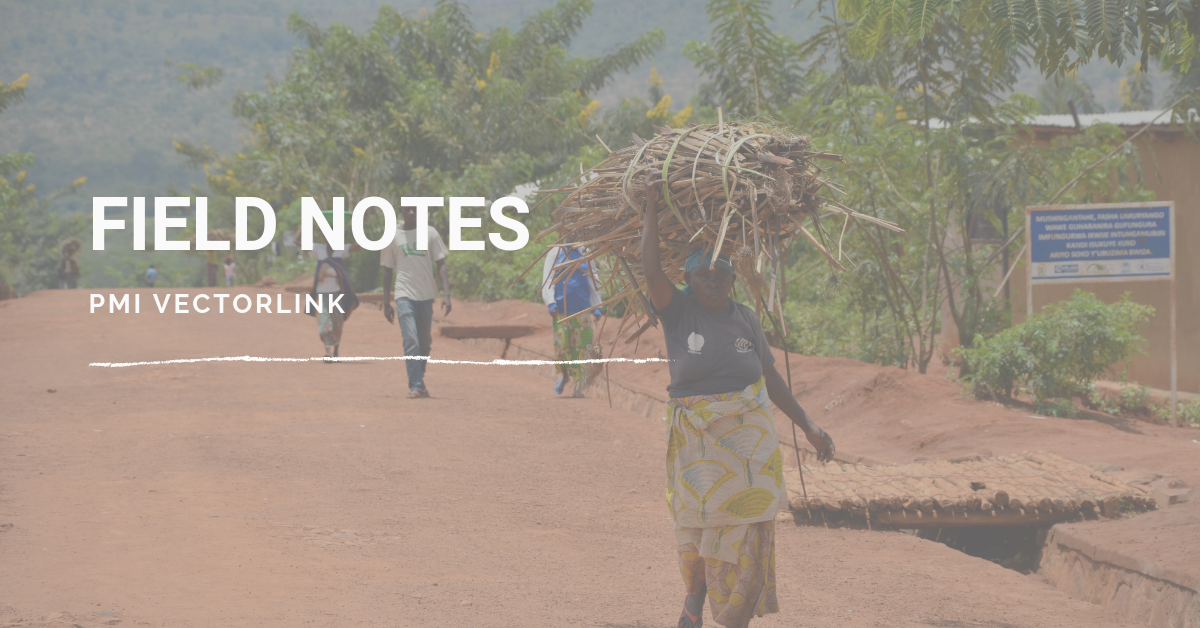 This week we are celebrating our PMI VectorLink Angola team for the support they have provided to the Instituto Nacional de Investigação em Saúde (INIS) located in Luanda and the National Malaria Control Program. With support from PMI and CDC, their capacity strengthening efforts have enabled the country to achieve a very exciting milestone: Angola now has the institutional and human capacity to conduct two key malaria lab analyses—polymerase chain reaction (PCR) tests and circumsporozoite enzyme-linked immunosorbent assays (CS ELISAs) within its own borders at INIS!
This week we are celebrating our PMI VectorLink Angola team for the support they have provided to the Instituto Nacional de Investigação em Saúde (INIS) located in Luanda and the National Malaria Control Program. With support from PMI and CDC, their capacity strengthening efforts have enabled the country to achieve a very exciting milestone: Angola now has the institutional and human capacity to conduct two key malaria lab analyses—polymerase chain reaction (PCR) tests and circumsporozoite enzyme-linked immunosorbent assays (CS ELISAs) within its own borders at INIS!
The VectorLink Angola team has been partnering with INIS and the NMCP since 2019 to collect and analyze samples obtained in the field through routine surveillance and insecticide resistance monitoring activities. As field activities went on, VectorLink Angola lab technician Dr. Rossely Kuango and the team worked diligently to get the right equipment, reagents, and materials in country to start lab analyses. In March 2022, the team hosted a CDC entomologist who supported the team as they conducted the first PCR test to identify mosquito species collected by PMI VectorLink.
Then, earlier this month, the team successfully completed a second training for conducting CS ELISAs to identify malaria parasites within mosquito samples. The training took place from September 26 – October 4 and was attended by two technicians from INIS and three NMCP staff. Each training day had two main parts: a morning session facilitated by Rossely to review the Malaria Research and Reference Reagent Resource Centre ELISA protocol and accompanying video (produced by CDC for training purposes), followed by a virtual Q&A session with Allison Hendershot (VL molecular entomologist), Alice Sutcliffe (CDC), and Melissa Yoshimizu (PMI) to ask questions and discuss technical concepts.
The training successfully covered the entire protocol, and participants were highly engaged throughout the training thanks to the organization and efforts of the local leadership (Rossely and INIS technician Julio Estobre), as well as the translated resources (protocol, video guide) which were made available during the training and will be shared with other Lusophone countries for their use.
Of the 150 field collected samples tested through the training, the team recorded seven confirmed positives for Plasmodium falciparum and have since continued to process samples. These lab results will help inform future vector control efforts, and the capacity strengthening efforts will enable more analyses of Angolan samples to be done by Angolans.
Well done, VectorLink Angola!


